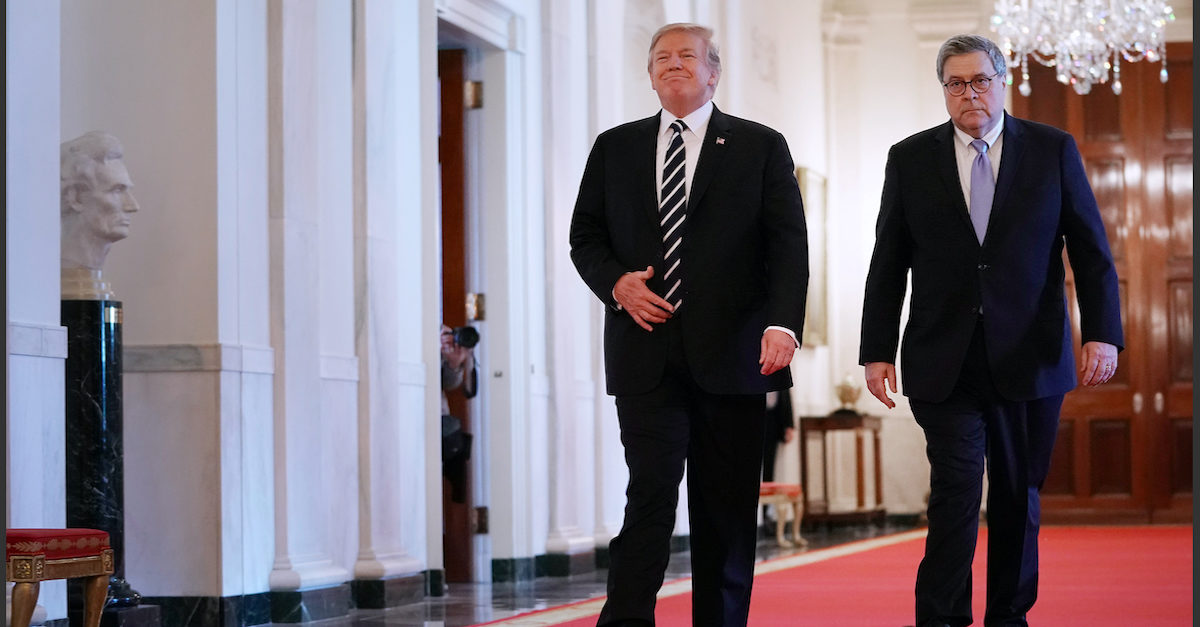
The Department of Justice filed a brief with the Supreme Court on Monday which argued that President Donald Trump has the authority to unilaterally revoke the Deferred Action for Childhood Arrivals program, otherwise known as DACA.
The DACA program, which was created through executive order by President Barack Obama in 2012, is actually a non-enforcement program, wherein certain young undocumented immigrants brought to the U.S. as children would receive deferred action from deportation and work permit eligibility, renewable every two years.
President Trump announced in 2017 that his administration planned to phase the program out, however those plans have stalled in the federal courts.
As previously reported by Law&Crime, a federal appellate court in May blocked the administration’s attempt to end the program. In a harsh ruling from U.S. Judge for the Fourth Circuit Albert Diaz, the court vacated the administration’s attempt rescind DACA, ruling that the decision failed even the most deferential scrutiny and was “arbitrary and capricious” under the Administrative Procedure Act (APA).
In the brief submitted Monday, attorneys for the DOJ argued that the lower courts’ “arbitrary and capricious” reasoning was invalid because the decision was not reviewable under that standard.
“The orders and judgments under review hold that DACA’s rescission either is or likely is arbitrary and capricious under the APA. But the revision is not reviewable under that standard […] A decision to rescind a policy of nonenforcement is a quintessential action committed to an agency’s absolute discretion,” DOJ attorneys wrote.
The DOJ returned to this point throughout the brief, arguing that the lower courts evaluated the administration’s decision under incorrect standards.
“Acting Secretary [Elaine] Duke acted reasonably in instituting an orderly wind-down of the policy, rather than risking a court-ordered shutdown, the terms and timing of which would be beyond the agency’s control. And Secretary [Kirstjen] Nielsen reasonably concluded that she too ‘lacked sufficient confidence in the DACA policy’s legality’ to maintain it…The arbitrary and capricious standard does not allow a court ‘to substitute its judgment’ for [the Department of Homeland Security’s] on that question.”
The government’s attorneys also stated that the court has no authority to overrule DHS’s determination that the program itself was unlawful.
DHS’s conclusion that the DACA policy was not just legally questionable but indeed unlawful itself requires that the rescission be upheld. That conclusion was correct. But even if the Court disagrees, DHS’s reasonable determination of the scope of its own authority provides ample justification for its decision.
They also fought back against claims that the decision was motivated by racial animus, writing that “allegations are wholly insufficient to show that Secretaries Duke and Nielsen were motivated by racial animus in deciding to rescind a policy sanctioning the ongoing violation of federal immigration law by 700,000 aliens, especially given the serious questions about its legality.”
The Supreme Court has agreed to hear arguments on the legality of the program and the administration’s decision this November.
Groups opposing the termination of the DACA program are scheduled to file their briefs next month.
[Image via Chip Somodevilla/Getty Images]